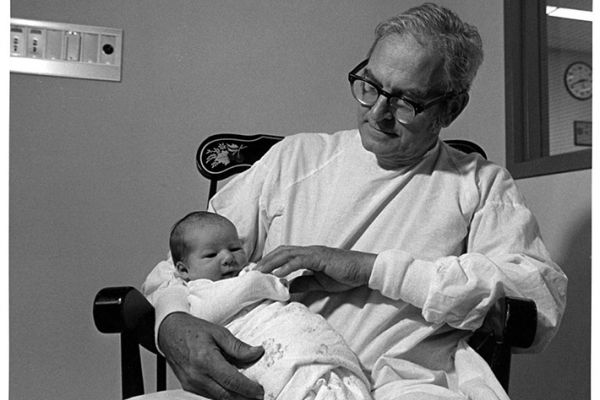Information and tips to help patients and families cope with this disorder
Sickle cell disease is one of the most common hereditary blood disorders in the world, and it affects many people right here in Western New York. Despite its commonality, there is a lack of understanding in the general public about sickle cell disease. To help raise awareness, we present information and tips to help patients and families cope with this disorder.
What is sickle cell disease?
Sickle cell disease is caused by abnormal hemoglobin in your red blood cells, which can change the shape of the cells into a “sickle” shape. These blood cells break apart more easily and get trapped in blood vessels, causing pain or even organ damage.
How do people get sickle cell disease, and how do you find out if you have it?
Sickle cell disease is a genetically inherited condition, which means affected individuals are born with it. Sickle cell disease does not develop later in life, and it is not contagious. It usually occurs when a child inherits sickle hemoglobin from both parents, but it may also result from inheriting sickle hemoglobin along with another abnormal type of hemoglobin. Sickle cell disease occurs most commonly in people of African descent, but it also can be seen in Middle Eastern, South Asian/Indian, Latino, Italian and other ethnic groups.
In the United States and many other nations, all babies undergo newborn screening testing at birth, which will show if the baby has sickle cell disease.
In our community, children with sickle cell disease receive care at the Sickle Cell and Hemoglobinopathy Center of Western New York at Roswell Park Comprehensive Cancer Center and Oishei Children’s Hospital. Our center is the designated New York State Department of Health Newborn Screening Referral Center for Buffalo and Western New York.
Get a second opinion with us
Roswell Park Oishei Children’s Cancer and Blood Disorders Program specializes in treating children with sickle cell disease.
What are the symptoms of sickle cell disease?
People with sickle cell disease are at risk for many sudden “crises,” or long-term complications, many of which can be prevented or managed. These include:
- Painful “crises” - Blockage of sickle cells in the blood can lead to pain anywhere in the body. It may happen spontaneously, but sometimes blockage is triggered by dehydration, cold exposure, windy conditions, stress or infection. Usually pain can be managed at home by drinking fluids, applying heat, resting and using pain medications; however, severe episodes require medical attention.
- Anemia - Sickle cell disease causes red blood cells to break apart more easily, leading to a decreased cell count and causing fatigue, headaches and jaundice. People with sickle cell disease often need blood transfusions to treat anemia or other complications.
- Infection - People with sickle cell disease are at high risk of life-threatening blood infections, so with any fever (temperature 101°F or higher) or sign of serious infection, emergency medical care is necessary.
- Stroke - People with sickle cell disease are at risk for strokes from an early age. We screen all of our patients for stroke risk and make efforts to prevent it from happening. However, if someone with sickle cell disease is showing signs of a stroke, call 911 immediately.
- Acute chest syndrome - A sickle crisis in the lungs can cause chest pain, difficulty breathing, fever or bad cough. It can become severe, so immediate medical attention is needed.
What can be done to help those with sickle cell disease?
- Preventive care:
- Penicillin should be taken throughout childhood to prevent life-threatening infections.
- Folic acid (a type of vitamin) should be taken every day.
- Many additional immunizations are necessary, including an annual flu shot, to help prevent infections.
- See your sickle cell doctor regularly, to monitor growth and development and spot any early signs of complications.
- Hydroxyurea is a medication that can decrease the risk of sickle cell complications.
- Specific medication therapies - Newer medications like Voxelotor, Crizanlizumab, and L-Glutamine can also be considered when indicated for certain patients.
- Chronic transfusion therapy - Getting monthly blood transfusions can reduce the risk for complications in those with more severe disease.
- Stem cell transplantation — the only cure for sickle cell disease — is typically performed for those with moderate to severe disease who have an available donor match.
Tips for coping with sickle cell disease
- Educate yourself, and make sure your information comes from reliable sources.
- Take your medications as prescribed, notifying your provider of any problems.
- Keep all your medical appointments.
- For children attending school, notify the school and teacher of the child’s sickle cell disease, providing instructions about what to do in case of a medical emergency.
- Make sure any of your child’s care providers are informed about the disease.
- Don’t fight the battle alone! Emotional support is crucial, so connect with other people who have sickle cell disease or other parents of children with the disease.

